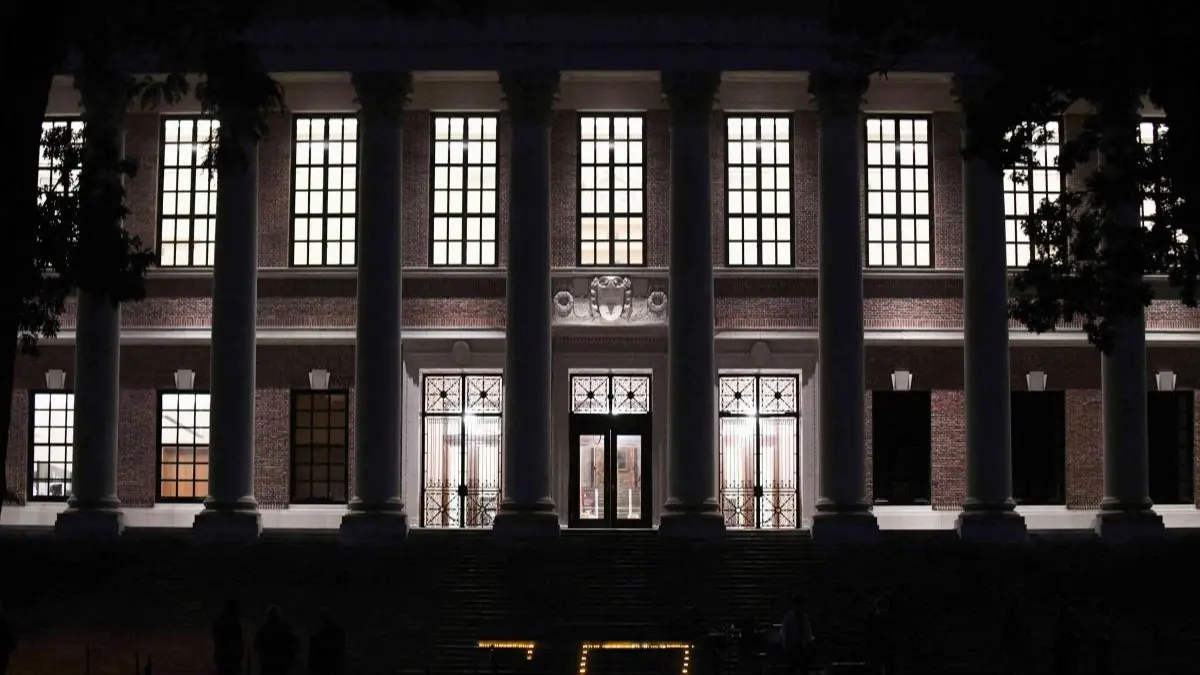Updated 15 April 2025 at 20:08 IST
For Trump and His Movement, Harvard Is the Perfect Opponent
US President Donald Trump, today, suggested that "perhaps Harvard should lose its tax exempt status and be taxed as a political entity".
- World News
- 4 min read

In a challenge to the Trump administration’s sweeping efforts to reshape American academia, Harvard University on Monday firmly rejected federal demands related to hiring based on merit, curriculum, and ideological oversight. The decision from the country’s oldest and wealthiest university quickly reverberated through the world of higher education, inspiring resistance among other institutions and drawing sharp criticism from conservative political leaders.
“Neither Harvard nor any other private university can allow itself to be taken over by the federal government,” wrote Harvard President Alan M. Garber in a defiant letter rejecting the administration’s requests.
The Trump administration’s demands included sharing internal hiring data and installing third-party monitors to ensure viewpoint diversity within academic departments — part of a larger campaign to curb left-wing orthodoxy on campuses. The clash marks a high-profile escalation in the administration’s broader crusade against “woke ideology” in education.
Moments ago, US President, in a post on social media, wrote that - “Perhaps Harvard should lose its Tax Exempt Status and be Taxed as a Political Entity if it keeps pushing political, ideological, and terrorist inspired/supporting “Sickness?” Remember, Tax Exempt Status is totally contingent on acting in the PUBLIC INTEREST!”
A Flashpoint in a National Culture War
Harvard, with a $53.2 billion endowment in 2024, is not just any university — it’s a symbol of American academic prestige and influence. Founded 140 years before the U.S. itself, it has educated eight presidents and enjoys more federal funding than nearly any other university. That makes it an especially attractive target for President Trump and his senior aide, Stephen Miller, who view Harvard as emblematic of the liberal establishment they seek to challenge.
Advertisement
Federal Retaliation Begins
Just hours after Harvard’s announcement, the federal government said it would freeze $2.2 billion in multi-year grants to the university, along with a $60 million contract. While this represents a fraction of the $9 billion in total annual federal support Harvard receives — including $7 billion for its 11 affiliated hospitals — the freeze signals a potentially wider crackdown.

It remains unclear which programs will be directly affected, but they could range from cancer research to space exploration and public health initiatives.
Advertisement
A Legal Battle Looms
Two high-profile attorneys representing Harvard — William A. Burck and Robert K. Hur — sent a sharply worded letter to government officials, rejecting the administration’s demands as legally overreaching.
“Harvard is not prepared to agree to demands that go beyond the lawful authority of this or any administration,” they wrote. The letter was addressed to officials at the Departments of Education and Health and Human Services, as well as the General Services Administration.
Both lawyers bring notable credentials: Hur previously served as special counsel investigating President Biden’s handling of classified documents, and Burck is a former ethics adviser to the Trump Organization.
Reactions from Both Sides
Supporters of the administration’s efforts, including Rep. Elise Stefanik, who investigated antisemitism on campuses, lashed out. “Harvard University has rightfully earned its place as the epitome of the moral and academic rot in higher education,” Stefanik, a Harvard alumna, posted on social media. “Defund Harvard.”

Meanwhile, Steven Pinker, a prominent Harvard psychologist, called the federal push for “viewpoint diversity” deeply misguided. “Will this government force the economics department to hire Marxists or the psychology department to hire Jungians or, for that matter, for the medical school to hire homeopaths or Native American healers?” he said. He added that the administration’s logic was “truly Orwellian.”
A Pivotal Moment for Higher Education
The stakes extend beyond Harvard. Columbia University recently agreed to federal demands in order to avoid losing $400 million in funding. The pressure on other institutions is mounting.
Ted Mitchell, president of the American Council on Education, made the case for Harvard’s leadership. “If Harvard had not taken this stand, it would have been nearly impossible for other institutions to do so,” he said.
While the administration could take further steps — such as investigating Harvard’s nonprofit status (as Trump's post suggested) or canceling international student visas — the battle has already become a defining moment in the fight over elite institutions in America.
For Trump and his movement, this is a confrontation they welcome.
Published By : Sagar Kar
Published On: 15 April 2025 at 19:46 IST
